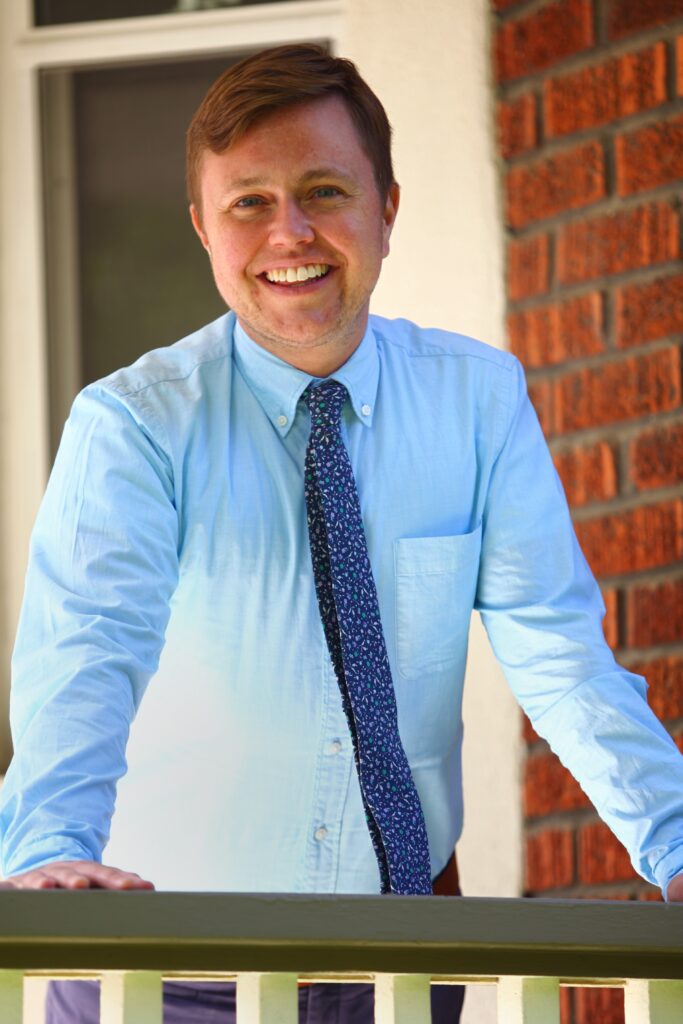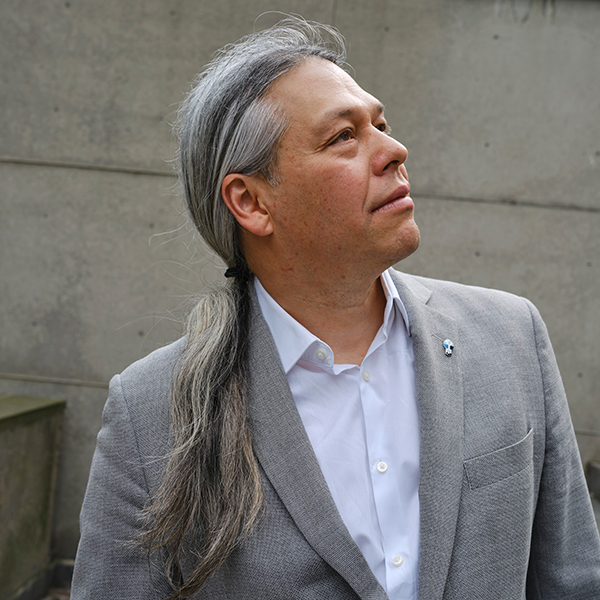Last spring, authorities in the United States separated children from their parents who had crossed into the country illegally via its southwest border. The children were sent to shelters. It sparked a huge public outcry, and BJ Jensen, BCL/LLB’11, found himself on the frontlines dealing with the fallout.

at the New York law firm Paul, Weiss.
Jensen is the full-time pro bono associate at the New York law firm Paul, Weiss. The chair of his firm, Brad Karp, co-wrote a sharply worded op-ed about the separation policy that appeared in The New York Times on June 25.
“As a group, we cannot stand by as our government, under the pretext of enforcing the law, violates it and traumatizes children and their parents in the process,” the op-ed stated. Paul, Weiss and 33 other major U.S. law firms pledged to take action. Jensen would play a major role in that effort.
Along with other lawyers, Jensen combed through public records on government-run websites looking for parents of children who wound up in New York. Drawing on interview notes from the children, they tried to find out where their parents were to facilitate contact.
“Of course, a four-year-old doesn’t necessarily know their parents’ legal name, so that became really difficult. Then we had to use some other strategies,” he says of the initial effort organized by Paul, Weiss that also involved other big law firms in New York.
In April, the Trump administration announced a “zero-tolerance policy” for illegal entry into the U.S.
“What they started doing was prosecuting parents for the misdemeanor offense of crossing into the U.S. without permission,” Jensen says. “And because criminal detention facilities can’t house children or families together, they started separating the kids and putting [them] into … the Office of Refugee Resettlement custody, and treating them as unaccompanied alien children.”
Jensen has helped spearhead Paul, Weiss’s child reunification efforts, which have included dispatching lawyers to do on-the-ground work with detained parents in Texas and Albany, N.Y.
The firm has also taken on individual clients, like the father who woke up to find his young daughter being taken from his arms after they crossed into Texas – the start of a 93-day separation.
“He was sent to Jersey, she was sent to Michigan,” says Jensen, whose colleagues managed to get them reunited.
Jensen didn’t witness the reunion in person. “One of the realities about my job – and this happened with the [Trump] travel ban, too – is that … I can’t leave my computer or telephone because I’m sort of organizing everything.”
The law firm couldn’t have made as much progress on the reunification issue without “BJ’s hard work and guidance,” says colleague and fellow McGill law grad Vincent-Pierre Fullerton, BCL/LLB’16.
Over the course of nearly two months when rotating teams of the firm’s lawyers were in El Paso, Jensen ensured that each member “had the necessary institutional knowledge to keep the process moving forward and to effectively represent our clients,” Fullerton says.
“With his strong background in immigration work, BJ also ensured that each of us understood what we were going into: a situation where individual immigrant parents were likely extraordinarily traumatized and where we would have to navigate that trauma, in addition to language and cultural barriers, to help identify possible routes to immigration relief and reunification with their children.”
The law firm also leads the steering committee set up by the American Civil Liberties Union (ACLU) to help with reunification efforts involving parents who were deported without their children. When he spoke to the McGill News in August, the steering committee work filled much of Jensen’s 16-hour days.
“We’re now focussed on locating, contacting and determining the wishes of all of the parents who have been deported from the United States without being reunified with their child,” says Jensen.
“We’re hearing from parents just really horrible things like that they were told if they left the country without pursuing an asylum claim they would get their child back right away and so they would get on a plane assuming that their child would be sitting there … and they haven’t been able to get any information.”
Jensen also leapt into action in January 2017 when the initial Trump travel ban took effect.
“We staffed JFK [Airport], in particular, around the clock for about a week, which felt like a really long time then, but now in the context of family separation it feels like such a short time,” he laughs.
Jensen grew up in Ottawa and came to McGill for his law studies. He loved his time at the University. “Probably the best part about it was my peer group, my fellow students. I think the school, it just attracts such an interesting, diverse, kind of committed sort of person.”
He clerked at the Federal Court in Ottawa, including for former chief justice, the Honourable Allan Lutfy, then joined Paul, Weiss as a litigation associate. He had previously worked at the firm during summers while at McGill.
His current position mainly involves helping to manage and support the firm’s pro bono work – with a focus on immigration. His days are often “a series of 5-15 minutes calls or email exchanges,” he says, “Where I’m just problem-solving or issue-spotting or helping to address issues on all of our different cases.”
He appreciates working at an “incredible” law firm that cares deeply about social justice. The family separation work has probably been the most important thing he’s ever done personally and professionally, Jensen says.
Growing up you learn about terrible moments in history, “and you think what would I have done if I had been there? And this moment in history – it is inconceivable to me that any of this has happened and continues to happen,” he says.
“It has been an incredible privilege to be able to spend my time at my day job just trying to do anything I can to help address it.”


